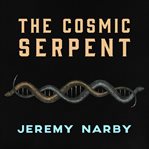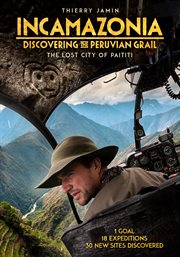The cosmic serpent DNA and the origins of knowledge
eAudio - 2016
This adventure in science and imagination, which the Medical Tribune said might herald "a Copernican revolution for the life sciences," leads the listener through unexplored jungles and uncharted aspects of mind to the heart of knowledge. In a first-person narrative of scientific discovery that opens new perspectives on biology, anthropology, and the limits of rationalism, The Cosmic Serpent reveals how startlingly different the world around us appears when we open our minds to it.
- Subjects
- Published
-
[United States] :
Tantor Audio
2016.
- Language
- English
- Corporate Author
- Main Author
- Corporate Author
- Other Authors
- Edition
- Unabridged
- Online Access
- Instantly available on hoopla.
Cover image - Physical Description
- 1 online resource (1 audio file (4hr., 56 min.)) : digital
- Format
- Mode of access: World Wide Web.
- ISBN
- 9781515922155
- Access
- AVAILABLE FOR USE ONLY BY IOWA CITY AND RESIDENTS OF THE CONTRACTING GOVERNMENTS OF JOHNSON COUNTY, UNIVERSITY HEIGHTS, HILLS, AND LONE TREE (IA).


